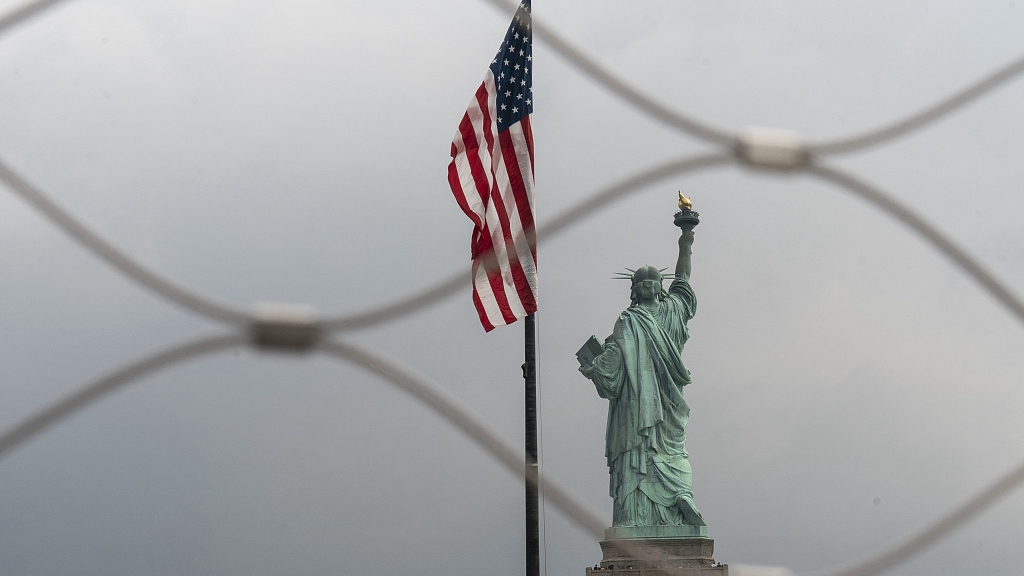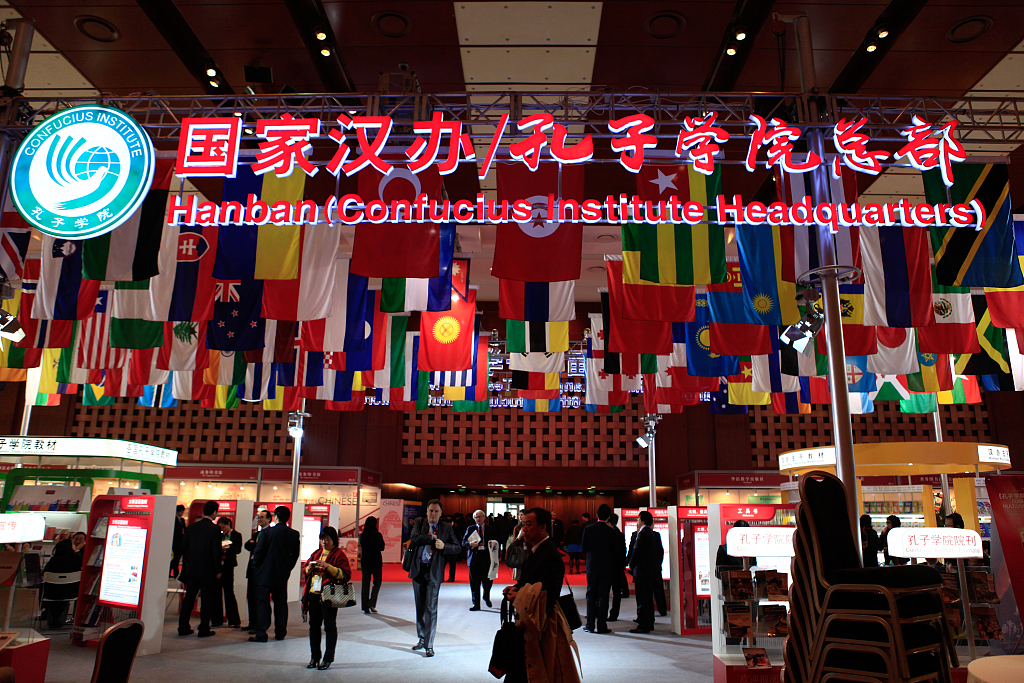
The Statue of Liberty stands on Liberty Island, New York City, U.S., August 14, 2019. /VCG Photo
The Statue of Liberty stands on Liberty Island, New York City, U.S., August 14, 2019. /VCG Photo
Editor's note: Danilo Türk is former President of the Republic of Slovenia from 2007 to 2012. He is currently a non-resident senior fellow at the Chongyang Institute for Financial Studies at Renmin University of China. The article reflects the author's opinions, and not necessarily the views of CGTN.
Recent news about the proposed closure of a number of Confucius Institutes in the U.S. and Australia carries an unpleasant scent of a negative political attitude towards China. This change of attitude deserves attention and concern.
For years now the Confucius institutes have played a very useful role of providing opportunities for learning Chinese, for cultural exchanges and general communication with China, much needed in our time.
Cultural cooperation between China and Western countries has been constantly gaining importance as the economic cooperation expanded. Cooperation among countries representing the main civilizations of the world cannot be reduced to trade and investment driven by profit.
It has to be informed by culture, the cooperating sides have to know each other better and linguistic barrier, in the case of China a serious factor in development of cooperation, has to be reduced.
Cultural cooperation, together with the promotion of cultural understanding is obviously a broad area of international relations. It reaches millions of people around the world. It includes the highest art.
Just in the first week of September, I enjoyed listening to two concerts of Chinese artists of world renown: The concert of the Shenzhen Symphony Orchestra in Ljubljana, Slovenia, playing works of Qianyi Zhang, Johannes Brahms, and Dmitri Shostakovich and a Eurovision-recorded concert of Vienna Philharmonic Orchestra in La Scala, Milan featuring a brilliant Chinese pianist Yuja Wang, who performed together with several top artists from Europe and Latin America.
Cultural cooperation knows no borders. This is not a cliché, it is a fact of life and should be among the leading realizations of our time.
Significantly, cultural cooperation means both widening of cultural exchanges and deepening of cultural understanding. China has demonstrated a keen interest in western cultures and for teaching and learning of languages of the world. Learning western languages plays an important role in this context.

The sixth Confucius Institute Conference was held in China National Convention Center in Bejing, China, December 13, 2011. /VCG Photo
The sixth Confucius Institute Conference was held in China National Convention Center in Bejing, China, December 13, 2011. /VCG Photo
At the same time, western fascination with China never stopped. China continues to be respected as a great civilization with a rich history and a variety of great artistic achievements.
However, culture cannot be fenced in and understood only in its most sublime aspect – the high arts. It must include a wide variety of cultural expressions, many of which require the knowledge of language.
In this aspect, most of the Western countries have much work to do and Confucius Institutes serve a very useful purpose. In Slovenia, for example, the Confucius Institute in Ljubljana, the capital, has established an irreplaceable role in the linguistic programs, starting at pre-school level and including the most sophisticated learning, which enables the top students of Chinese language and culture to continue their studies in China.
In addition, it has organized a series of highly visible cultural events and helped a variety of contacts in business and in education.
Today, nobody can doubt the necessity of cultural cooperation with China and the important role that Confucius Institutes are playing in this regard. It should also be understood that cultural cooperation cannot be completely separated from the political climate of cooperation in general.
However, mature decision makers understand that political systems in China and in the West differ, in some respect significantly. The basic principles of cooperation with China, such as the one-China principle and the respect for the Charter of the UN have to be upheld in practice.
This calls for careful conduct of work, the necessary mutual understanding and respect and, above all, the recognition that linguistic and cultural knowledge is above the political differences.
In fact, it is the understanding of language and culture that helps interpreting the differences that exist in the political sphere. The understanding of language and culture can and must inform political leaders about the requirements of sensible and wise political decisions.

Students during a Chinese spelling quiz at the Confucius Institute of the Far Eastern Federal District in Vladivostok, Russia, February 8, 2017. /VCG Photo
Students during a Chinese spelling quiz at the Confucius Institute of the Far Eastern Federal District in Vladivostok, Russia, February 8, 2017. /VCG Photo
Naturally, this role of language and culture has to work both ways - from international partners toward China and from China towards its international partners.
While all this is well known, it can easily be neglected in the heat of political passions. In the West we see a growing tendency of inciting fear of China and suspicion about China's activities in all fields, including in the fields of scientific, technological, and cultural cooperation.
The ongoing trade war, started by the U.S. in 2018, makes incitement of suspicion towards China instrumental as a means of pressure in trade negotiations. However, the unintended consequences of this tactic can be seriously harmful. It is all too easy to fall into a trap of seeing the other side as an enemy rather than as a competitor and a partner.
This is not a purely hypothetical danger. In the West, the nationalist sentiments have already fueled political decisions with adverse consequences. The slogan "America first," seemingly innocent and limited to only one part of the political spectrum in the United States, has already produced a series of negative consequences affecting a large number of international partners of the U.S. and large areas of international cooperation.
Fear mongering and incitement of suspicion against China can produce harm that will take a long time to remove. Confucius Institutes can become an easy target and an immediate victim.
Is there a way out or away from the danger of sliding into this trap? Clearly there is, but it will require a serious effort to bring political rationality into the center of international discourse.
This is not an easy task. International relations are not pure logic or rationality. They can be hijacked by emotions and passion, by narrow-minded nationalism and sheer irrationality. This seems to be a major threat to international stability at the current juncture.
A scent of Cold War is spreading around the world. There is still time to prevent its domination. Much more serious reflection and multilateral engagement will be necessary and, hopefully, available.
The recent summit of the G7 in Biarritz, France has once again demonstrated both the vital importance of multilateral engagement and the weaknesses of the discourse among some of the most influential international players.
A concerted action is called for. No opportunity should be missed.
(If you want to contribute and have specific expertise, please contact us at opinions@cgtn.com)